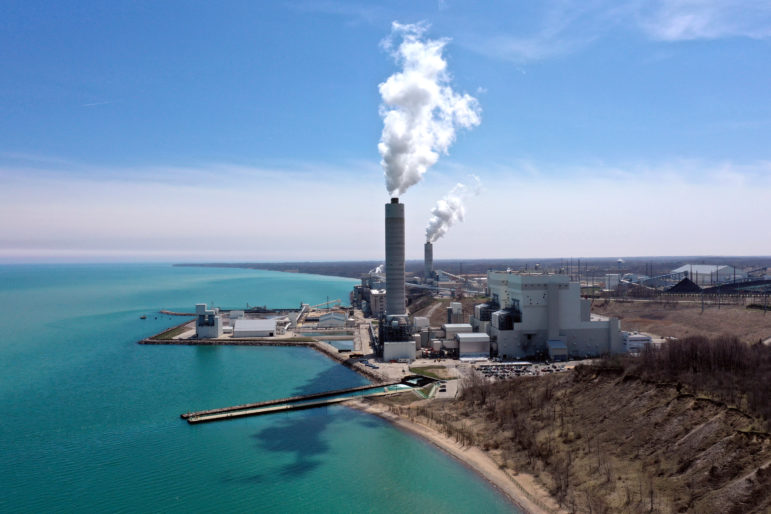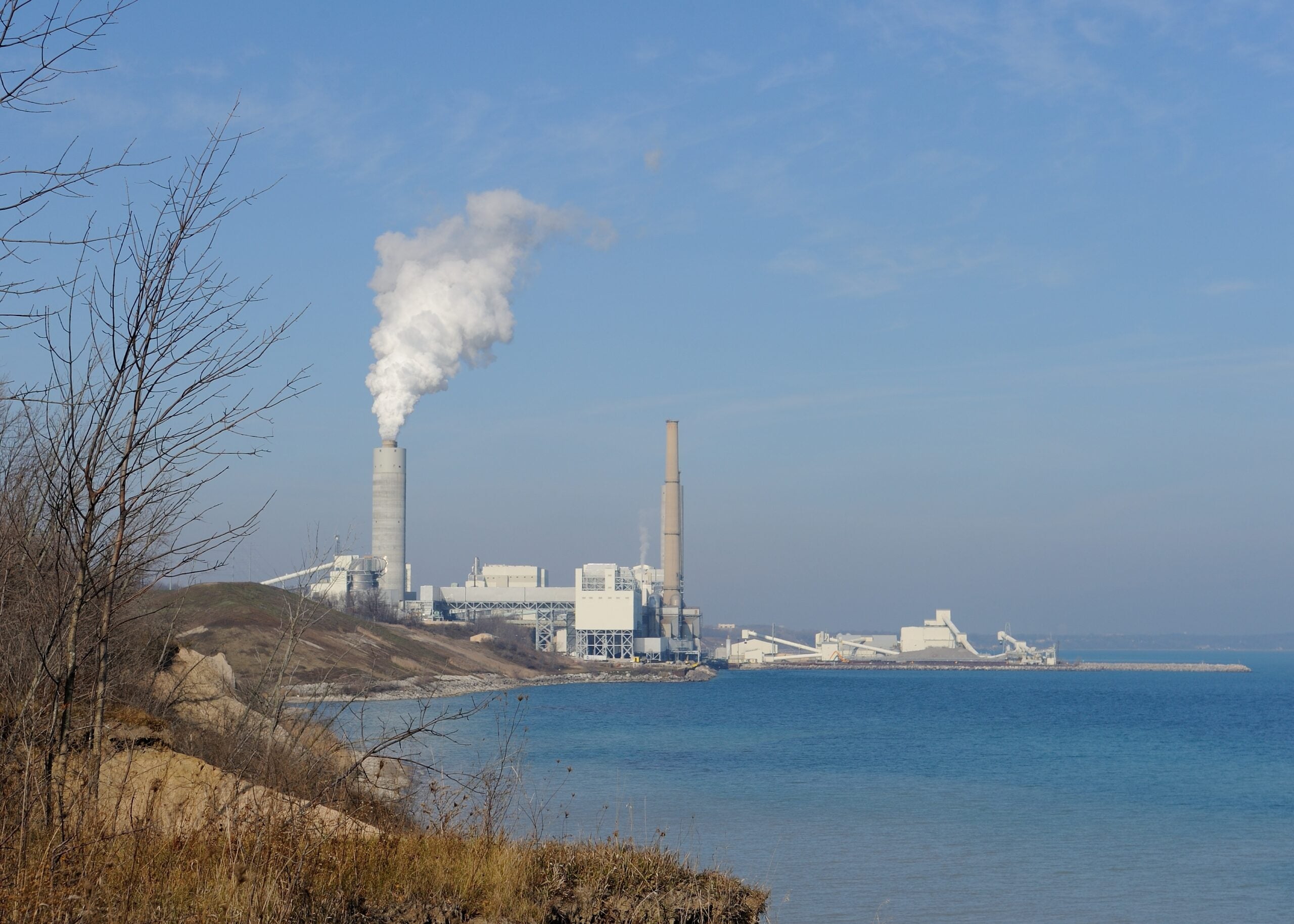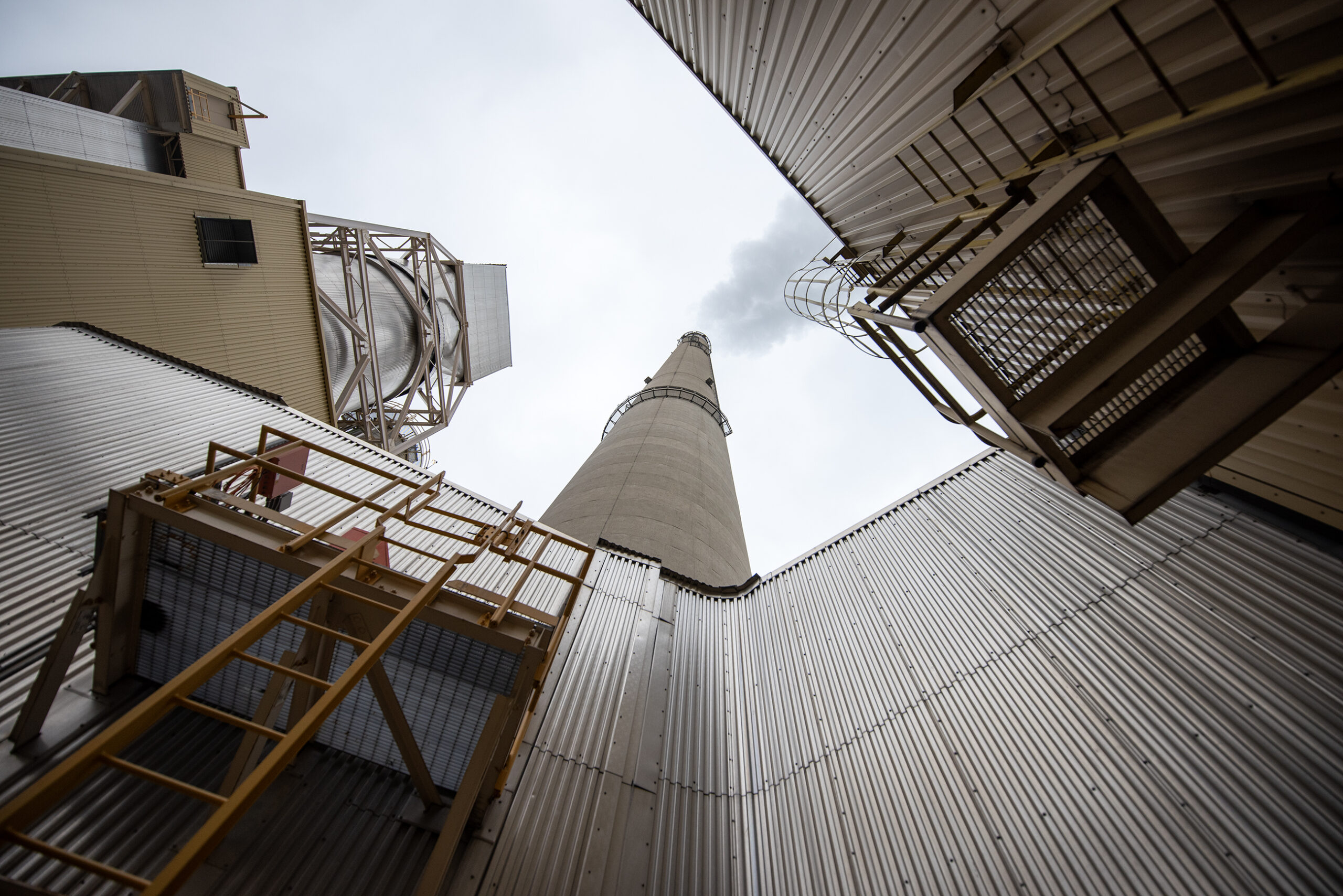The retirement of a coal-fired power plant in Columbia County has been delayed for a second time, the utilities that co-own the plant announced Wednesday.
The Columbia Energy Center was originally slated to shut down by the end of 2024, but two years ago that retirement was pushed back to 2026. Now, it will remain open through 2029.
Alliant Energy, Madison Gas and Electric and Wisconsin Public Service co-own the Columbia Energy Center. In a joint statement, the utilities said keeping the plant open will give them time to “explore converting at least one of Columbia’s units to natural gas.” They said their goal is to ensure reliability, support demand growth and maintain affordability.
Stay informed on the latest news
Sign up for WPR’s email newsletter.
“This plan allows the companies to continue leveraging current generation assets to enhance system reliability while addressing changing market conditions,” the statement reads.
Alliant Energy is the majority owner and operator of the plant. A spokesperson for Alliant declined to be interviewed.
Amy Barrilleaux, a spokesperson for the nonprofit Clean Wisconsin, said the news underscores the fact that utilities’ coal plant plans are voluntary and can be changed any time.
“There’s nothing in state law or anywhere else to hold these power companies accountable, nothing holding them to their word,” she said. “We don’t know when they’re actually going to retire this plant, if ever.”
“What we do know is that we’re going to be stuck with at least three more years of … burning dangerous, outdated and very expensive coal,” she added.
Earlier this year, Alliant Energy announced its coal plant in Sheboygan would continue burning coal until 2028 — it had been slated to retire in 2025. It was the second time the retirement of that plant was delayed after it was initially scheduled to retire in 2022. The Sheboygan coal plant will be converted into a natural gas power plant.
The Sheboygan announcement came after We Energies announced a similar conversion of its Elm Road Generating Station at its South Oak Creek facility in Milwaukee County. We Energies’ sister company, Wisconsin Public Service, is also planning to convert one of the coal-fired units in the power plant in Weston, near Wausau, to natural gas in the coming years and another coal unit will close.
Utilities have argued that natural gas plays an important role in the clean energy transition as they continue to invest in renewable energy projects.
A possible conversion of the Columbia County coal plant to natural gas would need to be approved by regulators. The statement from the utilities didn’t commit to a conversion, but said doing so would help meet “future capacity needs” and complement renewable energy resources.
“The plant’s co-owners’ commitment to carbon reduction goals remains unwavering,” the statement from Alliant, MGE and WPS said.
But planned natural gas developments across Wisconsin have faced scrutiny from environmental groups because natural gas is a fossil fuel.
While natural gas produces roughly half the carbon emissions of coal plants, it releases methane, which has more than 80 times the warming power of carbon dioxide over the span of two decades, according to the United Nations Economic Commission for Europe.
Barrilleaux with Clean Wisconsin said she believes converting the Columbia County plant from coal to natural gas would be the wrong move.
“You’ve got these companies that have made a lot of public climate pledges to their customers now wanting to spend a lot of customer money on methane gas,” she said. “That’ll lock us into at least 30 more years of burning fossil fuels, and we all know how devastating methane is for our climate.”
Wisconsin Public Radio, © Copyright 2025, Board of Regents of the University of Wisconsin System and Wisconsin Educational Communications Board.





